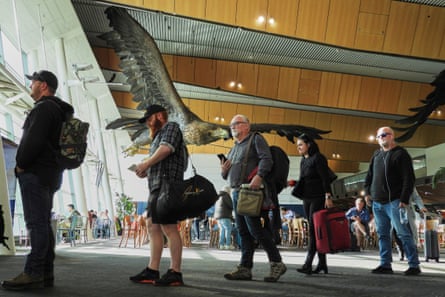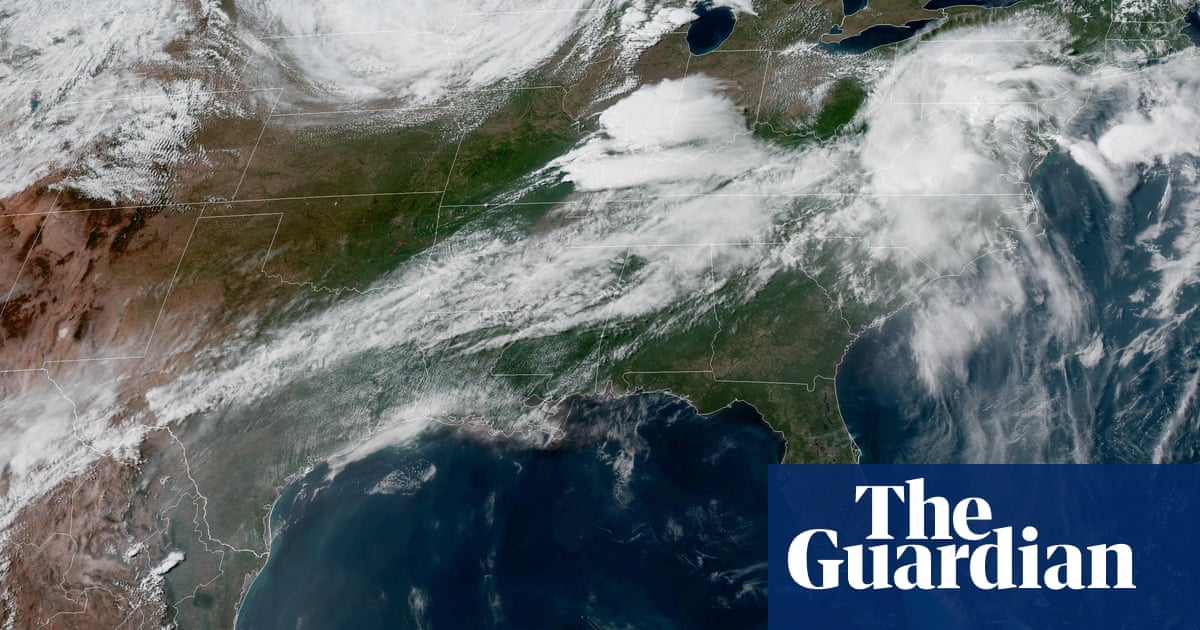Whenever a Brit learns that I’m a New Zealander – grew up there, got the passport, only moved to the UK in 2017 – often their faces scrunch up with confusion: “Why would you live here when you could be living there?”
It doesn’t seem to matter if they’ve been to New Zealand themselves or not. The implication is that I have known the Garden of Eden, even been granted a key, and responded by saying: “Actually, you know what? I’ll take Norwich instead.”
Whether it better reflects contemptuous familiarity with the UK, or an idealised view of New Zealand, I’m not sure. But very few people seem to believe me that, in many meaningful ways, the quality of life is much better in Britain.
So I was not surprised by the interest in a recent report about New Zealand “hollowing out”, with record numbers leaving through 2023 into 2024. Over the past two years, so many people have left the country – often for Australia, Canada or the UK – there are fears some small towns and rural communities will collapse.
There’s a long tradition of Kiwis heading overseas. What makes this recent rise in departures different is the apparent sweep of it. It’s not just young people off on their “big OE” (overseas experience). It’s those who are further along in life who have come to believe the grass may be greener elsewhere.
And it’s not just small towns that are failing to give them reasons to stay. Auckland – the largest, most “international” city, with a population of about 1.7 million people (of a total of 5.2 million) – has the most jobs and the highest salaries, but even one of those won’t necessarily give you a shot at property. As of this February, the average home in the city costs about NZ$1.25m – that’s roughly £555,000, about the same as in London despite a significantly lower average wage. It’s a similar situation in New Zealand’s capital city, Wellington, and recent public sector cuts haven’t helped the economic picture either.
I felt the impact of this when I was back in Wellington this February, visiting friends and family. When I moved there aged 17 to study, it felt deserving of its reputation as the “artsy” city. Even allowing for a more world-weary view 15 years on, I was struck by how much was exactly the same as in my student days (down to cafe menu items, and the monthly Britpop club night), while the new additions were generic or without charm. It was like time had stood still.
I don’t mean to be a seagull, flying in and dumping “all over everything” (to borrow a phrase from writer and fellow antipodean abroad Sarah Wilson, in her recent report on her trip back to Australia). There’s so much that’s special and unique about New Zealand, starting with the indigenous Māori culture and language – rightly and increasingly integrated in the national identity, despite attacks by the National-led government.
There are advantages over Britain. The food and drink is actually flavoursome, while the typical approach to hospitality makes you feel the meaning of the word. Work is rarely expected to come before life, and the beaches and scenery really are as staggeringly beautiful as you’d imagine.
Still, I’ve noticed the reported shift in Kiwis’ migratory patterns playing out in my network. For example, it used to be assumed you’d return home to start a family – but a striking number of friends have chosen to stay put in their overseas homes to have their first child, even at the cost of losing family support. The patchy public transport, even in cities, and car-centric culture have also been cited as barriers by people I’ve spoken to.
Access to culture and entertainment is also limited. Aucklanders were recently named the earliest diners in the world; I’ve heard of people being kicked out of restaurants at 9:30pm. “It’s kind of like, what are you meant to do after dark?” says my sister, who is now based in Amsterdam.

All this is compounded by the isolation, unimaginable for people in Europe. “I don’t think Brits understand what it is like to live at the bottom of the world,” a Kiwi friend who has lived in London for a couple years told me the other day. Equally, she pointed out, our ambivalence about returning reflects our privilege, of knowing we would be able to opt out of Britain should it start to feel too broken.
Of course there’s no single best place in which to live, not least because “quality of life” is a personal – and variable – equation. I feel very lucky to call New Zealand one of my homes, and every time I visit, I wonder if this will be the trip that makes me want to move back. So far, however, after a decade away, I’m more struck by the drawbacks than its many delights. Brits may think the grass is greener in New Zealand, but it’s Kiwis who are making the move.
-
Elle Hunt is a freelance journalist

.png) 10 hours ago
2
10 hours ago
2

















































